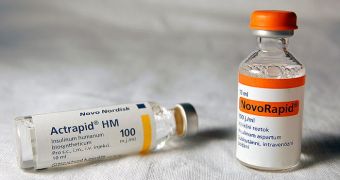An international group of researchers recently published a study detailing the discovery of a new pathway in the human body that is related directly to the development of cancer and diabetes. A key step in this pathway was also identified, which raises hopes for the development of future cures.
In a paper appearing in the October 28 online issue of the esteemed scientific journal Current Biology, the investigators, based in Japan and the United States, write about the activation patterns of a protein complex called TORC 2.
This complex is directly in charge of activating another protein called Akt, which previous investigations have proved plays a critically-important role in regulating how cells respond to insulin.
In diabetes patients, this hormone no longer regulates the amount of sugar in the bloodstream, and this can be fatal to humans. Regular insulin shots need to be administered to compensate for this deficiency.
Fat and muscle cells are usually responsible for picking up sugar from the body, but they only do so when insulin triggers this ability, says professor of microbiology Kazuo Shiozaki.
The expert, who is the lead author of the journal paper, holds an appointment at the University of California in Davis (UCSD) College of Biological Sciences, Science Blog reports.
His group focused its work on the protein Akt because previous mice studies revealed that rodents engineered to be born without this protein were very likely to exhibit diabetes-related symptoms.
Akt is responsible for regulating a host of processes that take place inside cells between when they are exposed to insulin and when they start taking up sugar. A key issue in type II diabetes is that, although the insulin is there, patients' fat and muscle cells cannot pick it up.
“We know that Akt is a key player in diabetes, so we are trying to work upstream from there,” Shiozaki explains. The group has been working on a way to activate Akt's control system, TORC 2, since the latter was discovered in 2005.
“Our discovery suggests that the early and late steps in insulin response are closely linked to each other,” the team leader goes on to say. The group performed their new experiments on yeast cells.
The new investigation was made possible through grant money secured from the US National Institutes of Health (NIH), the University of California Cancer Research Coordinating Committee, and the Japan Society for the Promotion of Science.

 14 DAY TRIAL //
14 DAY TRIAL //